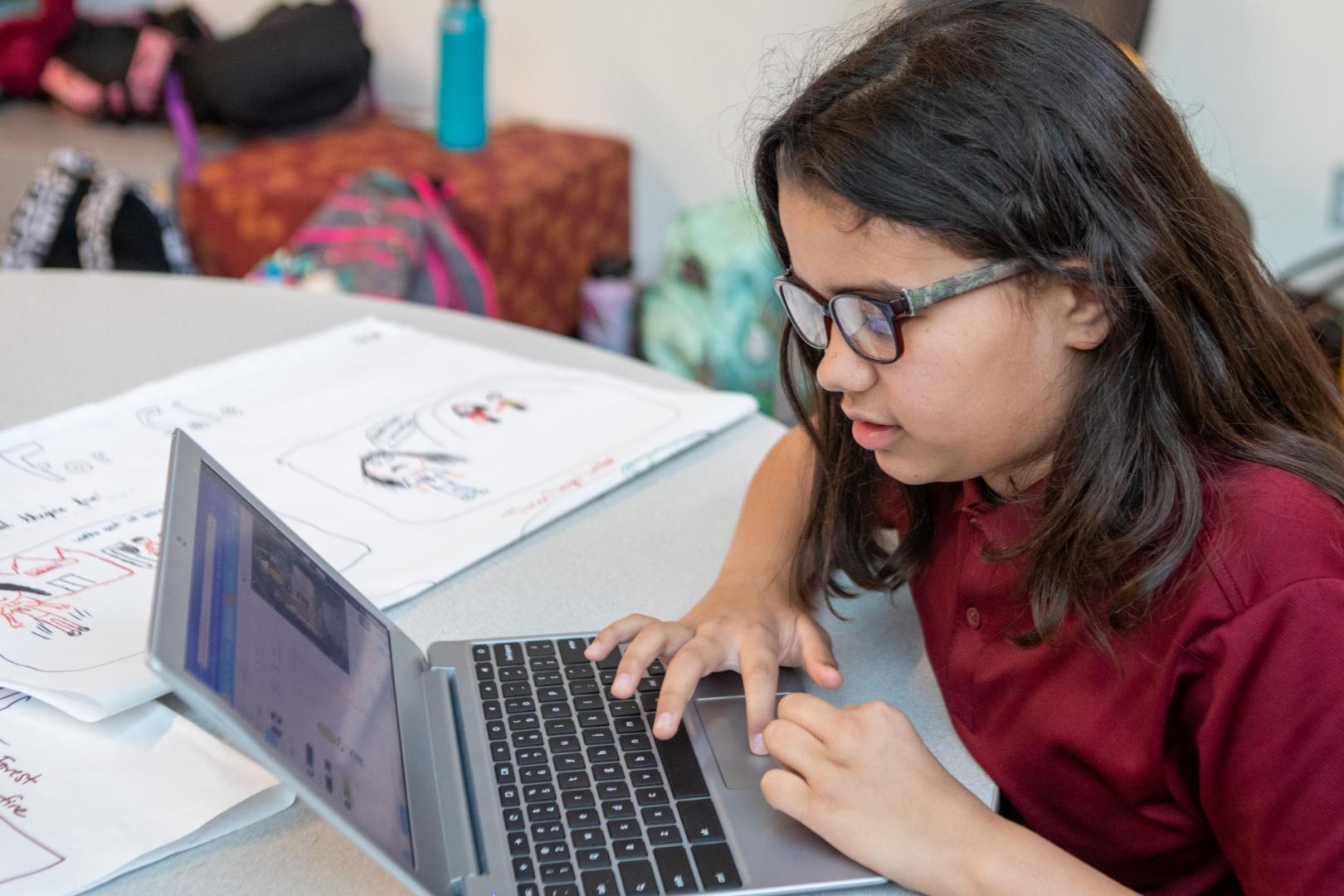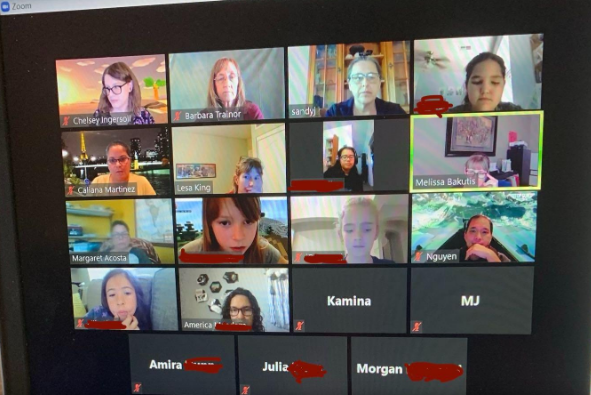UTO Gives Back, Takes ‘Girls Who Code’ Online

Read more Remote Resilience stories.
As ASU continues to monitor COVID-19, the university has transitioned from in-person teaching and learning to remote options. In this challenging time, however, the collective innovation of ASU faculty and staff has demonstrated remarkable adaptability. As a method of celebrating the good during uncertain developments, the University Technology Office is gathering success stories of “remote resilience” from the ASU community. The situation globally and across the country is changing daily, but we also plan to share these stories to keep pace.
By Susan Barrett, UTO Product Manager, and Sandra Johnson, UTO Special Advisor
Can you make a better pizza with technology? This seemingly simple question has been the focus of a Girls Who Code club sponsored by the University Technology Office. Third-, fourth- and fifth-graders, as part of the national organization that aims to increase the number of women working in computer science, are strategizing about how to use technology to engineer solutions for everyday challenges. This question was the outcome of the 2019 ASU IT professional event Empower, and was posed to the group by ASU Chief Information Officer Lev Gonick at ASU Poly Prep STEM Academy.
As the host for Girls Who Code at ASU Preparatory Academy, members of the UTO Giving Back team volunteer their expertise and enthusiasm to nurture young technologists, building confidence along with coding skills. The UTO Giving Back team hosts or facilitates community aid and community building events every week, fulfilling ASU's mission to be socially embedded within and beyond the university.
These Girls Who Code have moved their work online to follow physical distancing guidelines necessitated by the spread of COVID-19. Supported through the volunteers of UTO Giving Back, the coders are tackling several projects and learning valuable professional skills.
Bonnie LeBlanc, UTO Director of Enterprise Solutions, and Sandra Johnson, UTO Special Advisor, helped start the UTO support of the Girls Who Code program in 2019. The program is run like a club; facilitators ask guiding questions and the coders create the solutions. “Sometimes it brings a tear to my eyes,” Johnson said. “It’s amazing to work with kids who are excited about coding. They want to code. They want a project.”
For these students, the online sessions are all about the code. The in-person group discussions were replaced with an agile “stand up” process that breaks complex work into brief, yet productive, gatherings. Each coder provides an update on their progress, describes any difficulties and outlines their plans. The facilitators teach coding basics and share short tutorials about how to improve coding skills, and the coders work independently or in teams. In their next meeting, the coders will meet Arizona State Representative Isela Blanc, who will discuss the topics of women in politics and bravery.

Johnson and the team of UTO Giving Back facilitators meet regularly with the coders and teach them real-world project management and business analysis skills. “The kids see the role models -- we are all women in technology -- and we talk about it with them,” Johnson said. “The facilitators contribute our understanding of what it’s like to work on a project.”
The “build a better pizza” team is tackling their project from multiple angles. A fourth-grade coder decided that a survey was necessary for data collection. She’s building one to study if technology can produce a pizza that surpasses the flavor and presentation of a human-made product; if people would purchase pizzas from a vending machine or made by a robot; and how to customize a pizza using a phone app. The coders will investigate data analysis, robotics and software development, plus employ their new project management skills, to find answers to the pizza challenge.
Pizza is not the only need that calls for a technology solution. Other third-through-fifth-grade projects include creating solutions for homeless people in Arizona, designing an online racetrack, building avatars, finding lost pets and gaming.
The sixth- and seventh-grade Girls Who Code are learning hypertext markup language (HTML) to build a website that teaches American Sign Language. Their project was featured at an Arizona Department of Education conference and highlights the need to teach STEM skills to girls. Johnson said, “They are learning to be brave. This is about stepping outside of their comfort zone and going for it.”
Girls Who Code is on a mission to close the gender gap in technology and to change the image of what a programmer looks like and does. The Girls Who Code organization aims to build the largest pipeline of female engineers in the U.S. Girls’ participation in computer science drops dramatically between the ages of 13-17. The organization and its army of volunteers provide learning opportunities, a clear path to careers in technology, and a network of peers and role models committed to the success of Girls Who Code alumni.
Girls Who Code also provides free Girls Who Code at Home activities.
The Girls Who Code "pizza project" is ongoing until May 13, and we'll share the results then!